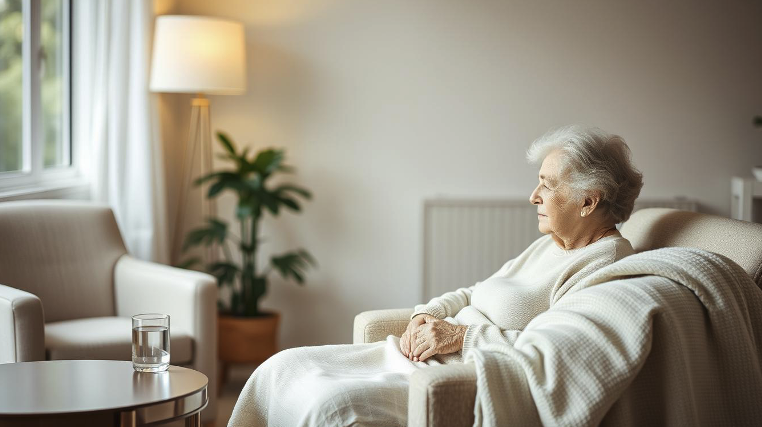As people get older, they might face a common challenge: elderly incontinence. This term covers many bladder control problems that can really affect older adults' lives. This article aims to help seniors and their caregivers understand and manage these issues.

Incontinence is a big problem for older adults, affecting about 50% of them. It can include stress incontinence, urge incontinence, or both. These issues can be hard on both the body and mind. By learning about the causes, readers can better understand and find help for incontinence.
Managing elderly incontinence often starts with getting professional advice. This part will talk about why seeing healthcare providers is key. Geriatric specialists and continence nurses can help create a treatment plan just for you. You'll learn about different ways to diagnose and treat incontinence, helping you tackle this issue head-on.
Incontinence is a common issue among the elderly. It's important to know the different types and causes. This helps in providing the right care and support.
Elderly people can face several types of incontinence. These include:
Stress incontinence - This happens when urine leaks during activities like coughing or sneezing. It's due to weak pelvic floor muscles.
Urge incontinence - It's when you suddenly need to urinate and can't hold it until you get to the bathroom.
Overflow incontinence - This occurs when urine leaks because your bladder is too full. It's often caused by blockages or nerve problems.
Functional incontinence - It's when you can't get to the bathroom in time. This is due to physical or mental issues, not bladder problems.
The reasons for incontinence in the elderly vary. Some common causes include:
Knowing the types of incontinence in the elderly and the causes of incontinence in older adults is key. It helps in finding effective ways to manage it. This improves their quality of life.
Managing incontinence in the elderly requires professional help. Doctors, urologists, and continence specialists are key. They help by evaluating, diagnosing, and creating treatment plans for older adults with bladder issues.
The first step is a detailed medical history and physical examination. Doctors might also suggest diagnostic tests like bladder studies or scans. This helps find the cause of incontinence in seniors and create a good treatment plan.
Regular checkups with a healthcare provider are essential for seeking treatment for incontinence in the elderly.
Healthcare providers for incontinence in seniors can identify the type of incontinence and develop a personalized management plan.
Incontinence evaluation for older adults may include physical exams, medical history, and diagnostic tests to determine the root cause.
Healthcare Provider | Role in Elderly Incontinence |
Primary Care Physician | Conducts initial evaluation, provides referrals to specialists |
Urologist | Specializes in diagnosing and treating urinary incontinence |
Continence Specialist | Develops comprehensive treatment plans for bladder control issues |
By working with healthcare providers for incontinence in seniors, older adults can start improving their lives. They can regain control and enjoy a better quality of life.
Dealing with incontinence in the elderly is a big challenge. But, there are ways to manage it and improve their life quality. By making lifestyle changes and using medical treatments, seniors can control their bladder and stay independent.
Simple lifestyle changes can greatly help manage incontinence in seniors. Pelvic floor exercises, or Kegel exercises, strengthen the muscles around the bladder. This helps prevent urine leaks.
Bladder training, like going to the toilet at set times, can also help. Changing what you eat, like cutting down on caffeine and alcohol, can reduce bladder irritation. This can lead to fewer incontinence episodes.
If lifestyle changes aren't enough, doctors might suggest medication or other treatments. Anticholinergic drugs, like oxybutynin or tolterodine, relax the bladder muscle. This reduces unwanted contractions.
In some cases, physical therapy, biofeedback, or electrical stimulation are used. These methods help retrain the pelvic floor muscles. For severe cases, surgery like sling procedures or urinary diversion might be needed. This provides long-term relief.